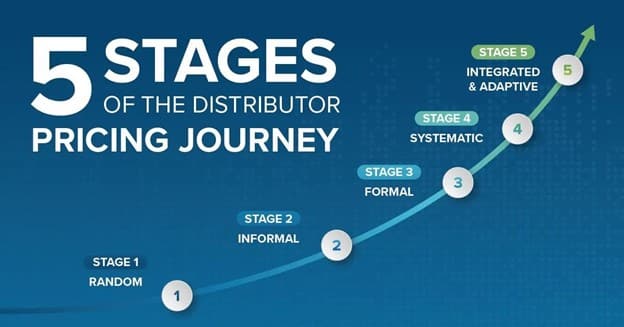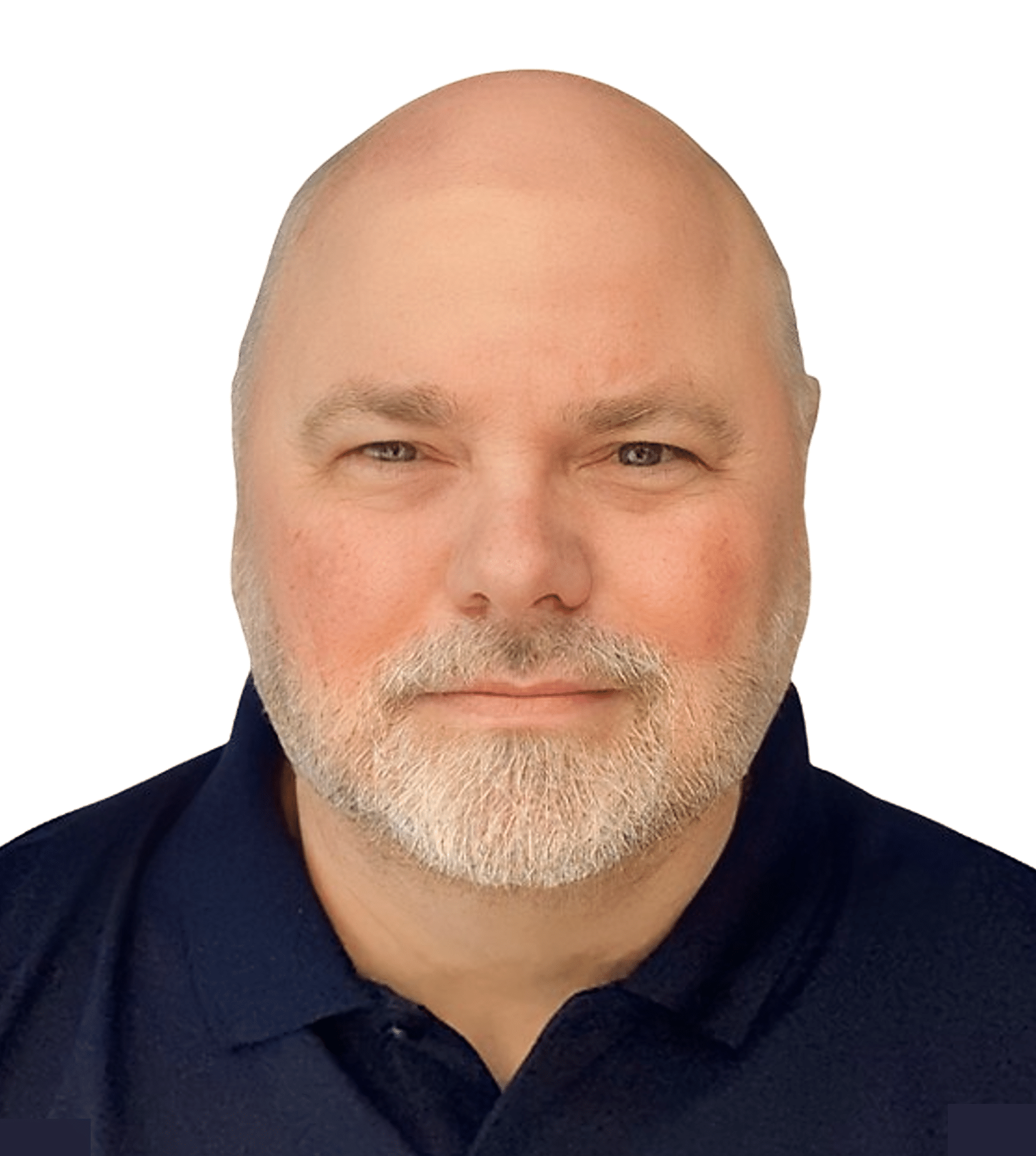Wholesale distribution is a competitive and dynamic industry that faces many challenges, such as changing buyer preferences and customer expectations, increasing price pressures, rising operational costs, evolving market trends and a host of other disruptors. To survive and thrive in this environment, wholesale distributors need to adopt a customer-centric approach that focuses on delivering value and ensuring customer satisfaction throughout the customer journey. This is where a Customer Success team can be helpful.
Customer Success is both a business strategy and a function that focuses on customers achieving their desired outcome with the distributor’s products and services. It ensures a good and mutually beneficial relationship between the client and the business.
Customer Success is not the same as Customer Service, which is a more reactive and transactional function that handles customer issues and complaints. Customer Success is also not the same as Account Management, which is a sales-oriented function that manages customer accounts and drives revenue growth. (There is a possible blend of CS and AM, which is explored separately in this article.)
Customer Success originated in the high-tech and software-as-a-service (SaaS) verticals, where product implementations are common and customer retention and loyalty are critical for recurring revenue and growth, especially in subscription-based business models. However, Customer Success has since expanded to other industries and sectors where customer expectations and needs are constantly evolving and require proactive and personalized solutions, such as e-commerce, education, healthcare and finance. It’s still most commonly found in “the techs,” though, including SaaS, EdTech, FinTech and MedTech.
But what about us? Should distributors have a Customer Success team? What are the benefits and challenges of having one? How can distributors implement and justify Customer Success effectively? In this article, I will do my best to answer these questions and provide some considerations, best practices and recommendations for distributors who may be interested in adopting Customer Success.
The Benefits of Having a Customer Success Team for Distributors
By having a Customer Success team, distributors can enjoy many benefits, such as:
- Increased customer retention and loyalty by building trust and satisfaction.
- Increased revenue and referrals by upselling, cross-selling and creating advocates.
- Reduced costs and improved efficiency by preventing churn, resolving issues and streamlining processes.
- Differentiation from competitors by offering value-added services and personalized experiences.
- Enhanced business reputation and brand image by delivering customer success stories and testimonials.
You may be thinking, “But wait! Isn’t that what my Account Managers do today?” Or even, “Isn’t that what my Inside Sales team does?”
In many cases, you’d be right, or at least close. In the case of Account Managers, what if they could spend more time assessing territory and account potential, setting account objectives, developing plans to achieve them and focusing on executing those plans? (For more on this approach to account management, see this article.) In the case of Inside Sales, these teams are often not really salespeople, but primarily customer service reps and order-takers.
A Customer Success team can free up your sales talent to truly focus on sales by either bringing in new accounts or executing account plans to maximize current account potential.
Customer Success can apply to both types of sales models in wholesale distribution: “transactional order flow” and “consultative engineered solution design and implementation.” However, the way Customer Success would be applied would vary in each case, depending on business and sales models, as well as customer needs, expectations and goals.
Transactional Order Flow

Customer Success for order-flow distributors can help customers by:
- Streamlining the ordering process and reducing errors and delays.
- Offering flexible and convenient delivery options and payment methods.
- Providing timely and accurate information on product availability, pricing and promotions.
- Suggesting relevant and complementary products and services that can enhance customer value and satisfaction.
- Soliciting and acting on customer feedback and reviews to improve product quality and service performance.
- Rewarding loyal and repeat customers with incentives, recognition and various levels of service.
- Identifying opportunities for upsells, cross-sells or other sales opportunities (beyond a one-order transaction) and connecting to an appropriate Account Executive or Account Manager.
Consultative Engineered & Implemented Solutions

Customer Success for an engineered solutions business model can help customers by:
- Understanding the customer’s challenges, opportunities, impacts, needs, outcomes and priorities (COIN-OP).
- Designing and delivering customized and effective solutions that meet or exceed customer expectations.
- Providing ongoing support, training and education to ensure customer adoption and satisfaction.
- Monitoring and measuring customer outcomes and demonstrating value and ROI.
- Identifying and creating opportunities for upselling, cross-selling and referrals.
- Building long-term and mutually beneficial relationships with customers and stakeholders.
The Challenges of Having a Customer Success Team for Distributors
However, having a Customer Success team also comes with some challenges. It can:
- Require a significant investment in technology, training and staff to implement and maintain.
- Entail a shift in culture and mindset from transactional to relational.
- Demand a high level of coordination and collaboration across different departments and functions.
- Expose the business to negative feedback and complaints from dissatisfied customers, if not done well.
To overcome these challenges, distributors need to follow some best practices and recommendations.
Best Practices for Distributors to Adopt Customer Success
To adopt Customer Success effectively, distributors need to follow some best practices, such as:
- Creating a customer experience strategy that aligns with business goals and values.
- Defining a clear customer experience vision that guides the customer’s journey and interactions.
- Broadening services and offerings to meet diverse and evolving customer needs.
- Being proactive and anticipatory in addressing customer challenges and opportunities.
- Investing in tools and technologies that enable customer success, such as CRM, ERP, e-commerce, analytics, AI tools and automation.
- Monitoring customer experience metrics and KPIs that track customer satisfaction, loyalty and value.
- Training and empowering staff to deliver customer success across all functions and departments.
- Collaborating and communicating with customers and partners to foster trust and engagement.
The Economic Business Case for Customer Success in Distribution
It’s well known that low profit margins can pose a significant challenge to wholesale distributors. They can make it difficult to introduce radical changes or add departments, such as a Customer Success team. However, investing in Customer Success can have a positive impact on the bottom line, as well as on customer loyalty and retention. To justify the investment, wholesale distributors need to see an economic business case that makes sense.
To create an economic business case for Customer Success, wholesale distributors need to estimate the following:
- The initial cost of setting up a Customer Success team, including hiring, training, technology and tools.
- The ongoing cost of maintaining a Customer Success team, including salaries, benefits, incentives and overheads.
- The expected revenue from Customer Success activities, such as upselling, cross-selling, referrals and renewals.
- The expected savings from Customer Success outcomes, such as reduced churn, increased retention, improved efficiency and enhanced reputation.
- Any possible staffing changes. For example, with servicing duties reduced for Account Managers, you may require fewer AMs — and their refocus on increased sales activities should deliver higher revenue and returns.
Your case should also include some qualitative benefits of Customer Success, such as customer satisfaction, loyalty, advocacy and trust. These benefits may not have a short-term direct monetary value, but they can have a significant impact on the long-term relationship and value of the customer.
Using Strategic Pricing Gains to Fund Customer Success

One way that wholesale distributors can free up cash for initiatives such as Customer Success is through a strategic pricing initiative. A strategic pricing methodology is a systematic and data-driven approach to setting optimal prices for products and services, based on factors such as customer value, demand, competition and costs.
A strategic pricing methodology helps wholesale distributors identify and capture pricing opportunities. Such a methodology may involve:
- Segmenting customers and products based on their profitability and potential.
- Optimizing prices for each segment based on their price sensitivity and willingness to pay.
- Implementing dynamic pricing strategies that adjust to changing market conditions and customer behavior.
- Monitoring and measuring pricing performance and impact on key metrics, such as margin, volume and profit.
According to our experience at SPARXiQ, a strategic pricing implementation can add 200 to 400 basis points to the bottom line in just 90 days. This means that for every $10,000 of revenue, the profit margin can increase by $200 to $400. This can generate a significant amount of cash that can then be used to fund Customer Success initiatives, such as hiring, training, technology and tools. (Read more about this strategy here.)
However, even after being established by the returns from the pricing initiative, the Customer Success team must be self-funding (at minimum) or return gains. This means that the Customer Success team must generate enough revenue and savings to cover its own costs and contribute to the overall profit of the business. To achieve this, the Customer Success team must:
- Align its goals and activities with business objectives and strategy.
- Define and track key performance indicators (KPIs) and metrics that measure the value and impact of Customer Success.
- Communicate and demonstrate the value and ROI of Customer Success to internal and external stakeholders.
- Continuously improve and optimize Customer Success processes and practices based on data and feedback.
- Generate referrals of sales opportunities to the appropriate Account Executives or Account Managers.
Closing Thoughts
Customer Success can be a powerful way to boost your wholesale distribution business. By having a Customer Success team for both order flow and engineered solution sales models, you can create value and satisfaction for your customers and your business. And by following the best practices for Customer Success, you can differentiate your business from competitors and achieve sustainable and profitable growth.
However, to invest in Customer Success, you need to see an economic business case that makes sense. One way to create that business case is to use a strategic pricing methodology that can increase your profit margins and free up cash for Customer Success initiatives. From there, you still need to ensure that your Customer Success team returns gains — or at least funds itself. Customer Success is not a one-time event, but a continuous process that requires commitment and investment. The rewards can be well worth the effort.
If you decide to pursue this and need help or advice along the way, you know where to find me. And if not, I’d still enjoy hearing about your journey and successes as you explore whether a Customer Success team is right for you. Feel free to reach out at any time.
Mike Kunkle is an internationally recognized expert on sales enablement, sales effectiveness, sales training, sales coaching, sales management, and sales transformations.
He’s spent over 30 years helping companies drive dramatic revenue growth through best-in-class enablement strategies and proven effective sales systems.
Mike is the founder of Transforming Sales Results, LLC where he designs sales training, delivers workshops, and helps clients improve sales results through a variety of sales effectiveness practices and advisory services.
He collaborated to develop SPARXiQ’s Modern Sales Foundations™ curriculum and authored their Sales Coaching Excellence™ and Sales Management Foundations™ courses.
Mike's book, The Building Blocks of Sales Enablement, is available on Amazon, with others coming soon in 2026, starting with The CoNavigator Method for B2B Selling.

